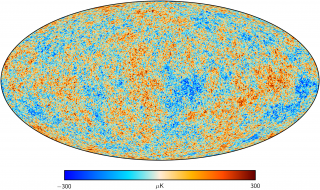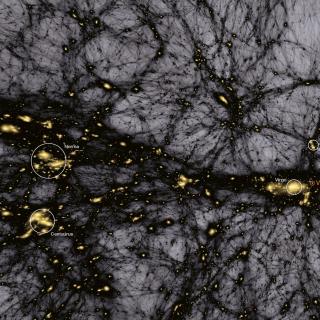Bibcode
Planck Collaboration; Zonca, A.; Yvon, D.; Zacchei, A.; Vittorio, N.; Wade, L. A.; Wandelt, B. D.; Vielva, P.; Villa, F.; Van Tent, B.; Tristram, M.; Valenziano, L.; Toffolatti, L.; Tomasi, M.; Tauber, J. A.; Terenzi, L.; Suur-Uski, A.-S.; Sygnet, J.-F.; Sunyaev, R.; Sutton, D.; Stolyarov, V.; Sudiwala, R.; Starck, J.-L.; Stivoli, F.; Shimwell, T. W.; Smoot, G. F.; Schammel, M. P.; Scott, D.; Saunders, R. D. E.; Savini, G.; Rusholme, B.; Sandri, M.; Rubiño-Martín, J. A.; Rumsey, C.; Ristorcelli, I.; Rocha, G.; Rodríguez-Gonzálvez, C.; Rosset, C.; Rossetti, M.; Renault, C.; Ricciardi, S.; Reinecke, M.; Remazeilles, M.; Rachen, J. P.; Rebolo, R.; Pratt, G. W.; Puget, J.-L.; Popa, L.; Poutanen, T.; Platania, P.; Pointecouteau, E.; Polenta, G.; Piacentini, F.; Pierpaoli, E.; Perrotta, F.; Perdereau, O.; Perrott, Y. C.; Patanchon, G.; Pearson, T. J.; Paoletti, D.; Pasian, F.; Osborne, S.; Pajot, F.; Novikov, I.; Olamaie, M.; Noviello, F.; Novikov, D.; Natoli, P.; Nørgaard-Nielsen, H. U.; Munshi, D.; Naselsky, P.; Montier, L.; Morgante, G.; Miville-Deschênes, M.-A.; Mennella, A.; Mitra, S.; Melin, J.-B.; Mendes, L.; Meinhold, P. R.; Melchiorri, A.; Matthai, F.; Mazzotta, P.; Massardi, M.; Matarrese, S.; Marshall, D. J.; Martínez-González, E.; Masi, S.; MacTavish, C. J.; Maino, D.; Mandolesi, N.; Maris, M.; Marleau, F.; Luzzi, G.; Macías-Pérez, J. F.; Linden-Vørnle, M.; López-Caniego, M.; Liddle, A.; Lilje, P. B.; Leach, S.; Leonardi, R. et al.
Bibliographical reference
Astronomy and Astrophysics, Volume 550, id.A128, 20 pp.
Advertised on:
2
2013
Journal
Citations
24
Refereed citations
23
Description
A comparison is presented of Sunyaev-Zeldovich measurements for 11
galaxy clusters as obtained by Planck and by the ground-based
interferometer, the Arcminute Microkelvin Imager. Assuming a universal
spherically-symmetric Generalised Navarro, Frenk and White (GNFW) model
for the cluster gas pressure profile, we jointly constrain the
integrated Compton-Y parameter (Y500) and the scale radius
(θ500) of each cluster. Our resulting constraints in
the Y500 - θ500 2D parameter space derived
from the two instruments overlap significantly for eight of the
clusters, although, overall, there is a tendency for AMI to find the
Sunyaev-Zeldovich signal to be smaller in angular size and fainter than
Planck. Significant discrepancies exist for the three remaining clusters
in the sample, namely A1413, A1914, and the newly-discovered Planck
cluster PLCKESZ G139.59+24.18. The robustness of the analysis of both
the Planck and AMI data is demonstrated through the use of detailed
simulations, which also discount confusion from residual point (radio)
sources and from diffuse astrophysical foregrounds as possible
explanations for the discrepancies found. For a subset of our cluster
sample, we have investigated the dependence of our results on the
assumed pressure profile by repeating the analysis adopting the
best-fitting GNFW profile shape which best matches X-ray observations.
Adopting the best-fitting profile shape from the X-ray data does not, in
general, resolve the discrepancies found in this subset of five
clusters. Though based on a small sample, our results suggest that the
adopted GNFW model may not be sufficiently flexible to describe clusters
universally.
Related projects

Anisotropy of the Cosmic Microwave Background
The general goal of this project is to determine and characterize the spatial and spectral variations in the temperature and polarisation of the Cosmic Microwave Background in angular scales from several arcminutes to several degrees. The primordial matter density fluctuations which originated the structure in the matter distribution of the present
Rafael
Rebolo López

Cosmology with Large Scale Structure Probes
The Cosmic Microwave Background (CMB) contains the statistical information about the early seeds of the structure formation in our Universe. Its natural counterpart in the local universe is the distribution of galaxies that arises as a result of gravitational growth of those primordial and small density fluctuations. The characterization of the
FRANCISCO SHU
KITAURA JOYANES